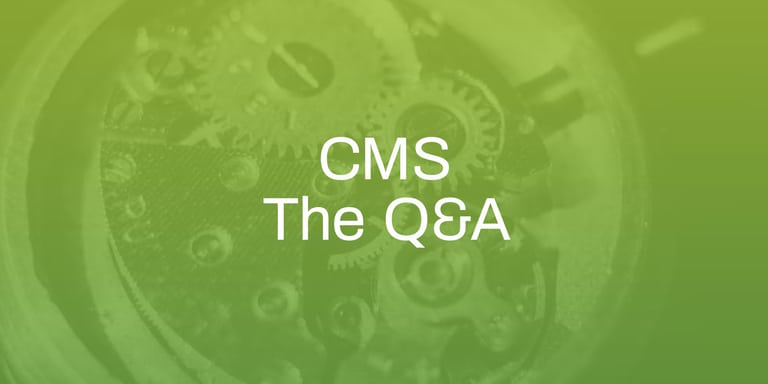What is a CMS?
A CMS is the abbreviation of Content Management System. When working with us, a CMS is usually a web-based software application that allows for collaborative editing of content. Content Management Systems are specifically designed to allow non-developers to work with them.
Content Management Systems drive the front-end of a website but can also be drivers for mobile apps, voice assistants, third-party data pools or any other expression of content in the front-end. Some CMS incorporate online shops or complex business processes. A CMS can even be designed to be a company’s control center of all the online activities.
Often, CMS are categorized in proprietary and open source solutions. In proprietary CMS – like AEM or Sitecore – the source code is not free to use neither public. This is the case for open source CMS only. They are often accompanied by large communities that provide a significant feature set completely free to use. We strongly believe in open source and only work with open source CMS such as Drupal, Wordpress, Wagtail, Django CMS or October. If you’d like to learn more, this video gives you a great and playful explanation about open source.
What is the best CMS for us as a company?
There is no right answer to this question. The best CMS for your digital product(s) depends on your business goals in the short, mid and long-term.
Are you planning on selling products online? Would you like to connect other systems with relevant data to the CMS? What are your requirements regarding the front-end? What kind of devices would you like to play out content to? What are your resources (time and money)?
If this all sounds a bit overwhelming to you, don’t worry. The described situation is actually a great opportunity for you to ask yourself those questions early in a project and talk to experts, if needed. The best CMS for your business case might not be the one with the best marketing appearance. The ideal CMS fits your technical, procedural and structural needs. Each CMS has strengths and weaknesses. We recommend you to do a professional review. If done right and early in the process, it will save you a lot of money and time to market in the long run.
What are smart questions to ask when choosing a CMS?
- What are the project and business goals? Will the CMS help reach these goals?
- Which functionalities should the CMS cover?
- Which channels should be fed via the CMS? Which marketing channels are relevant?
- Which systems should be integrated into the digital platform?
- What size would the platform be?
- What is the CMS’s Total Cost of Ownership (TCO)?
- How many active developers are in the open source community? Is it easy to find qualified developers for the technology/CMS?
- Who will be editing the content of the new web platform? Are the content editors experienced with CMS? Do they have good visual awareness or should the system provide support in that area?
- Does the CMS support the latest SEO requirements?
- Does the CMS support multilanguage well?

